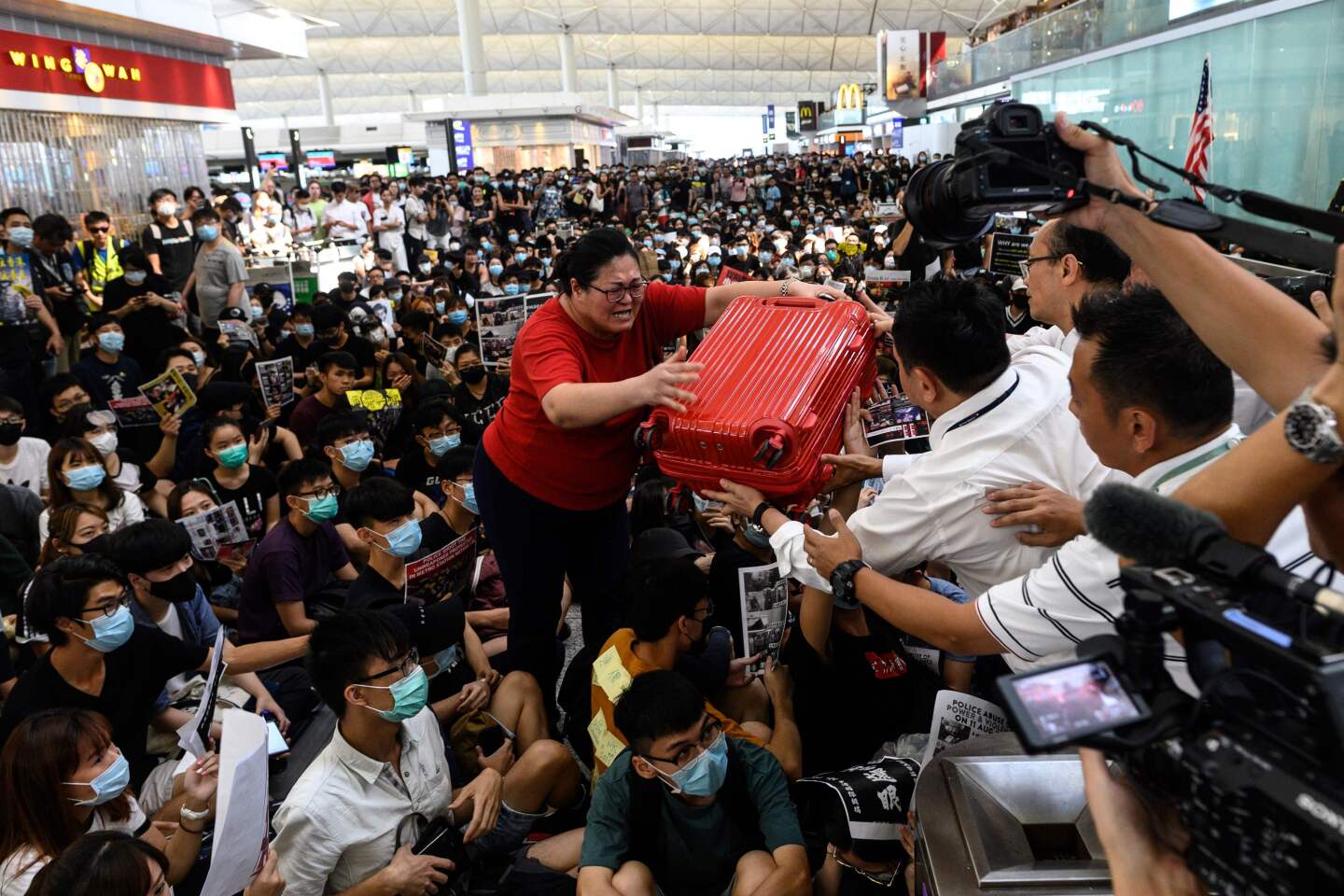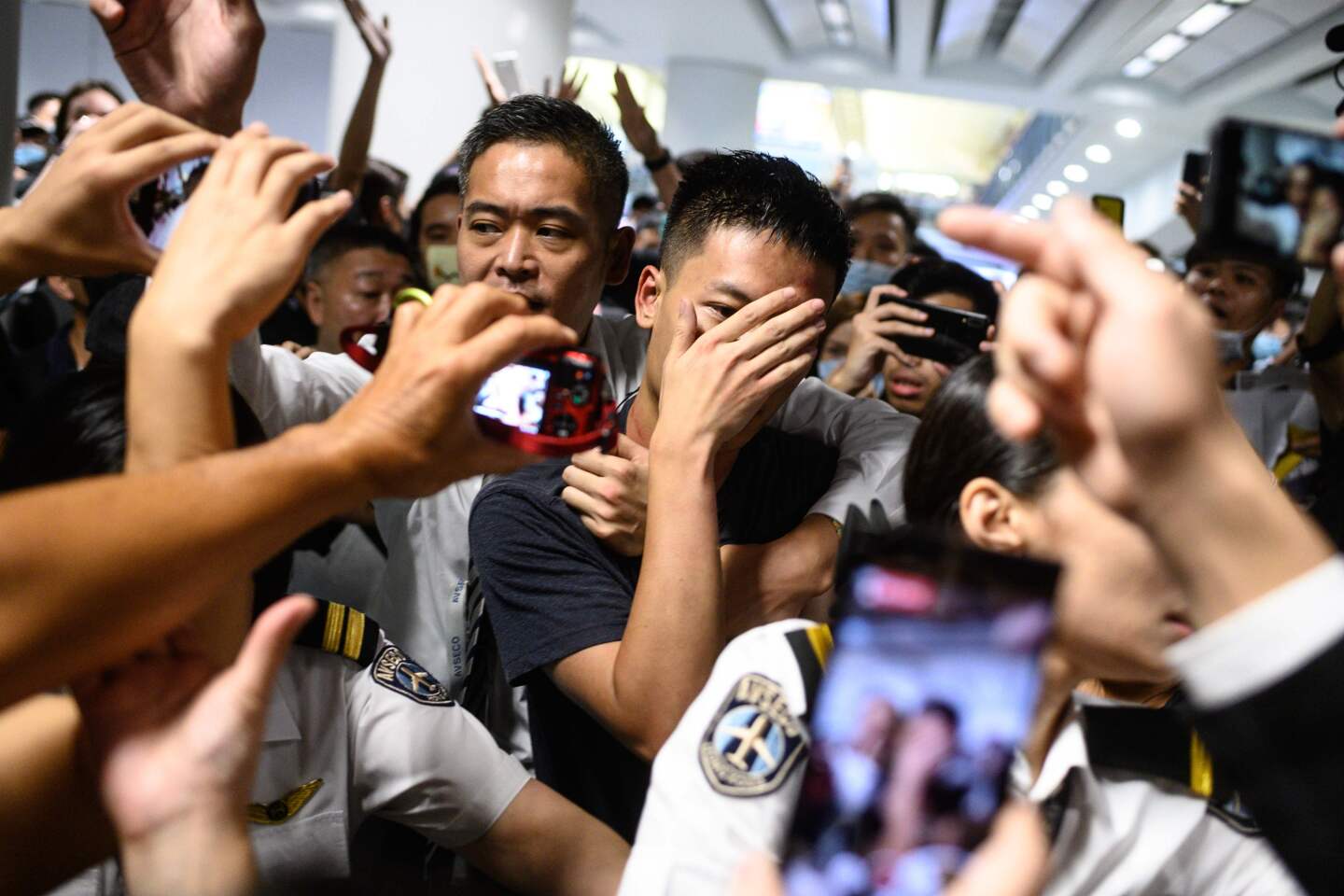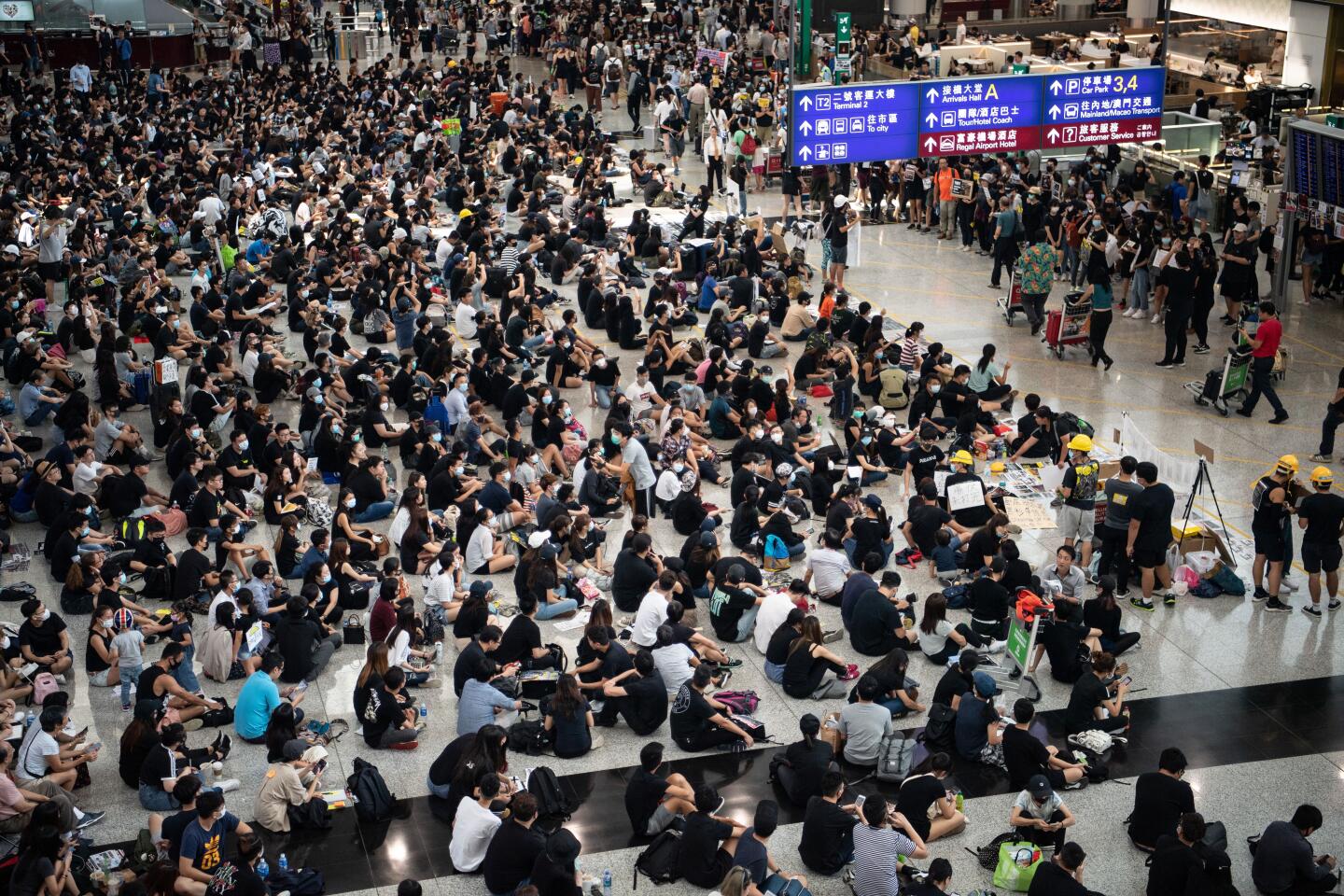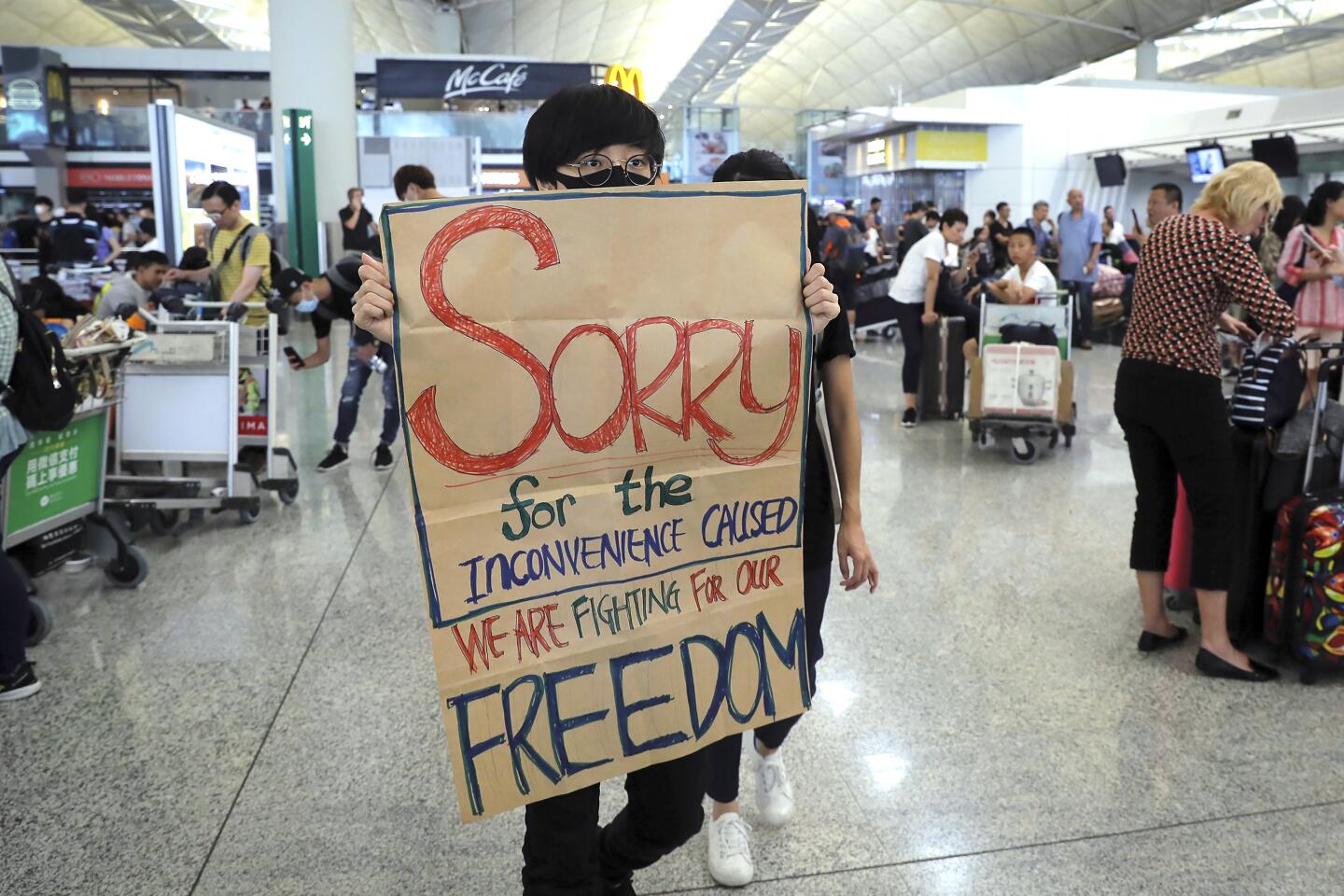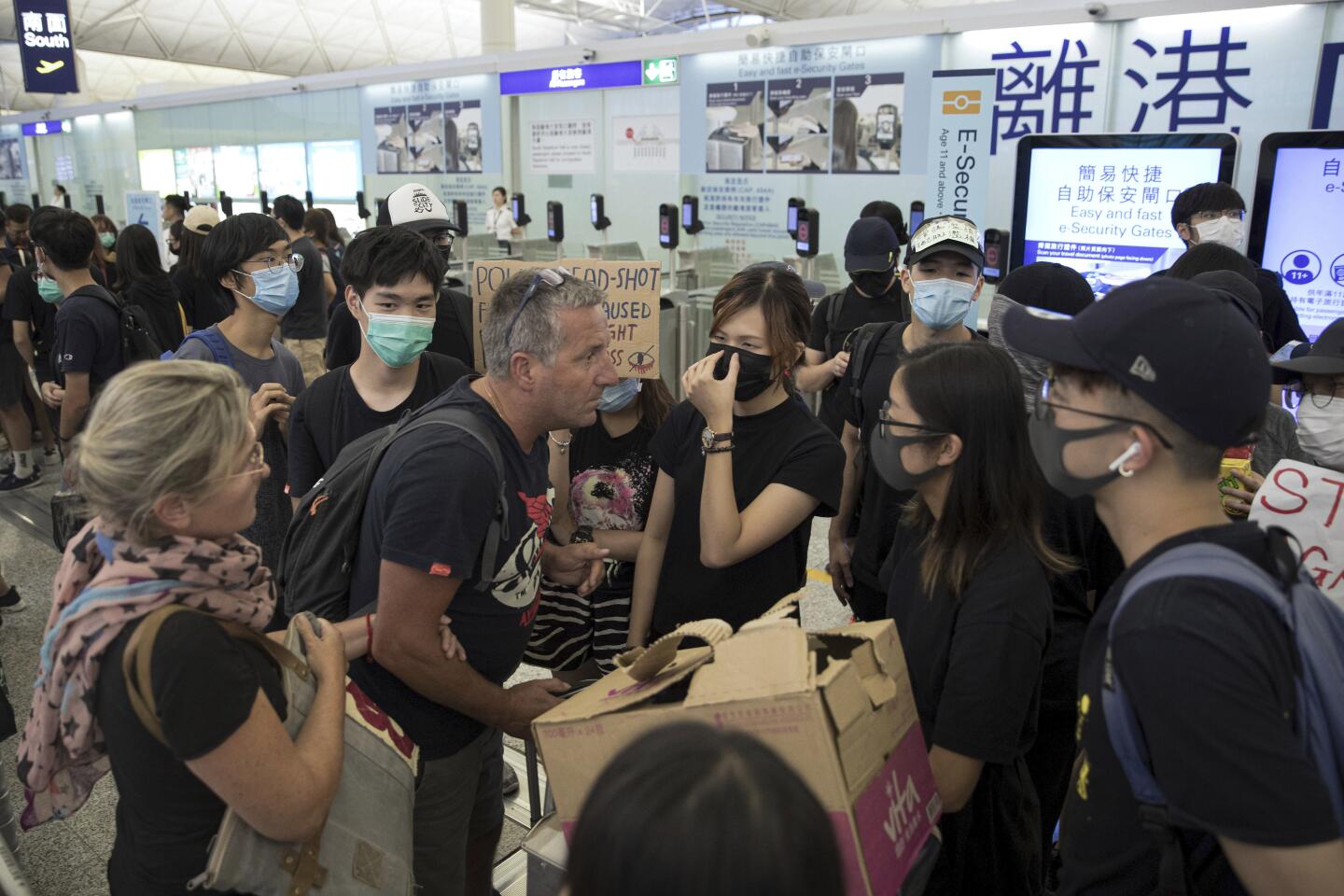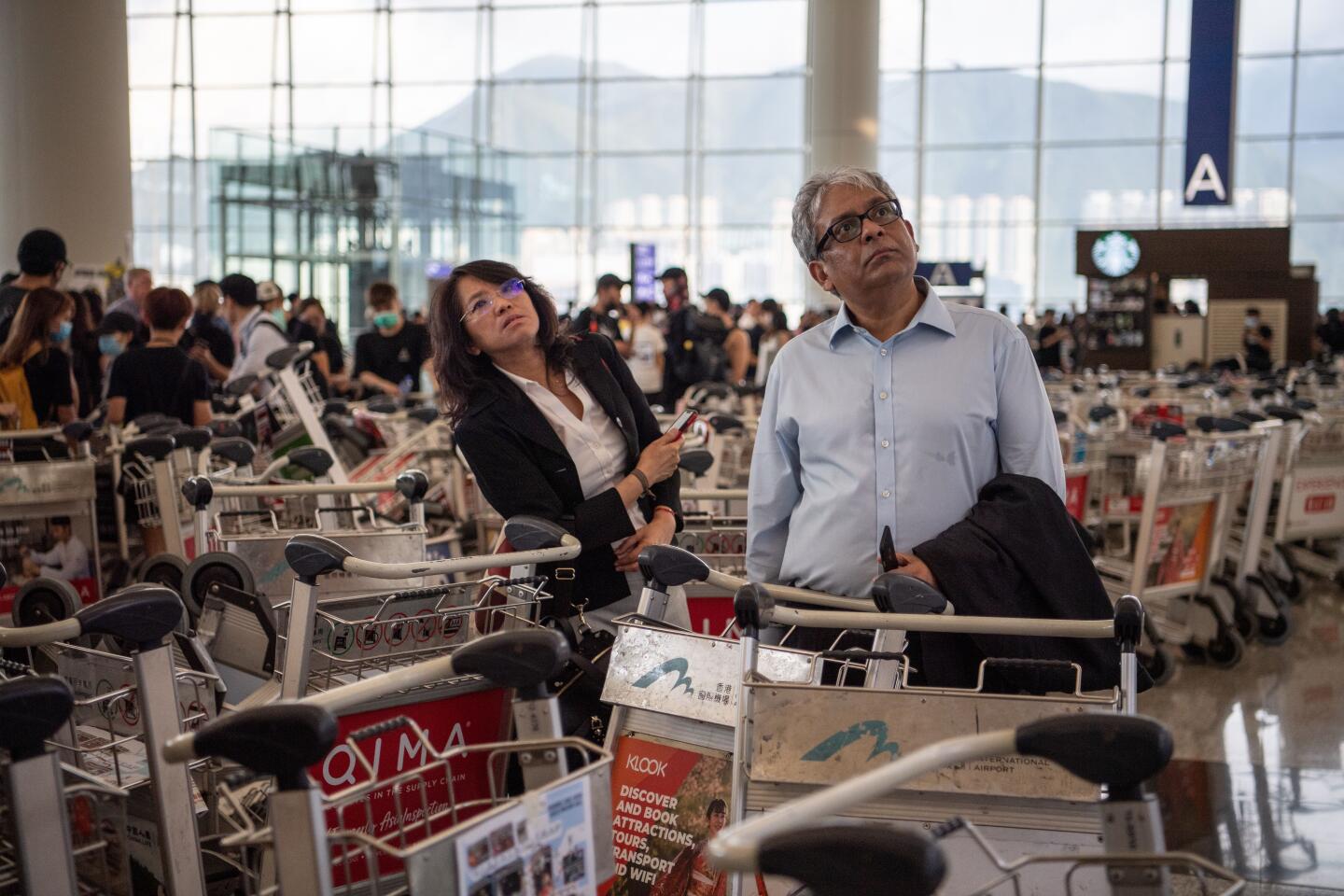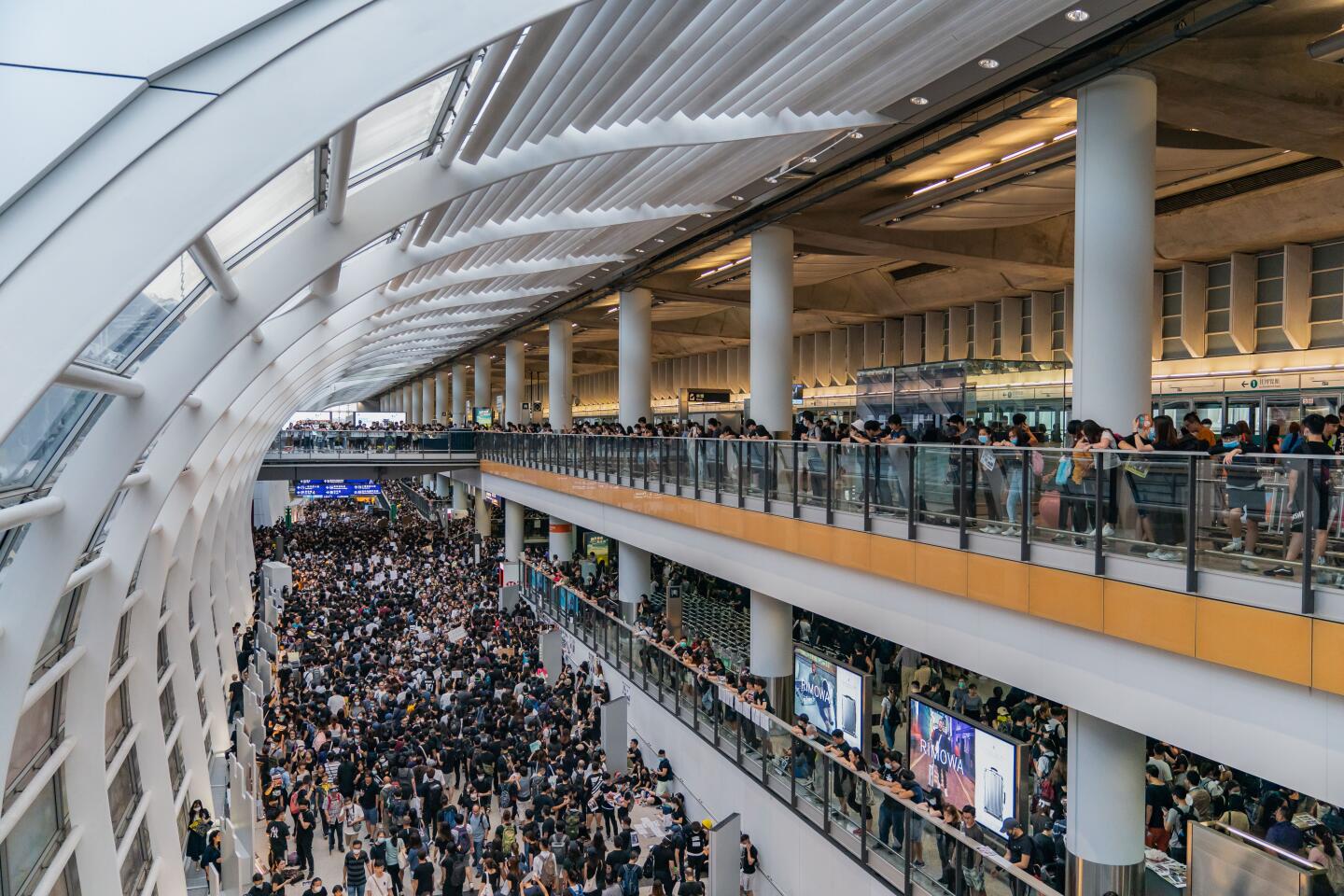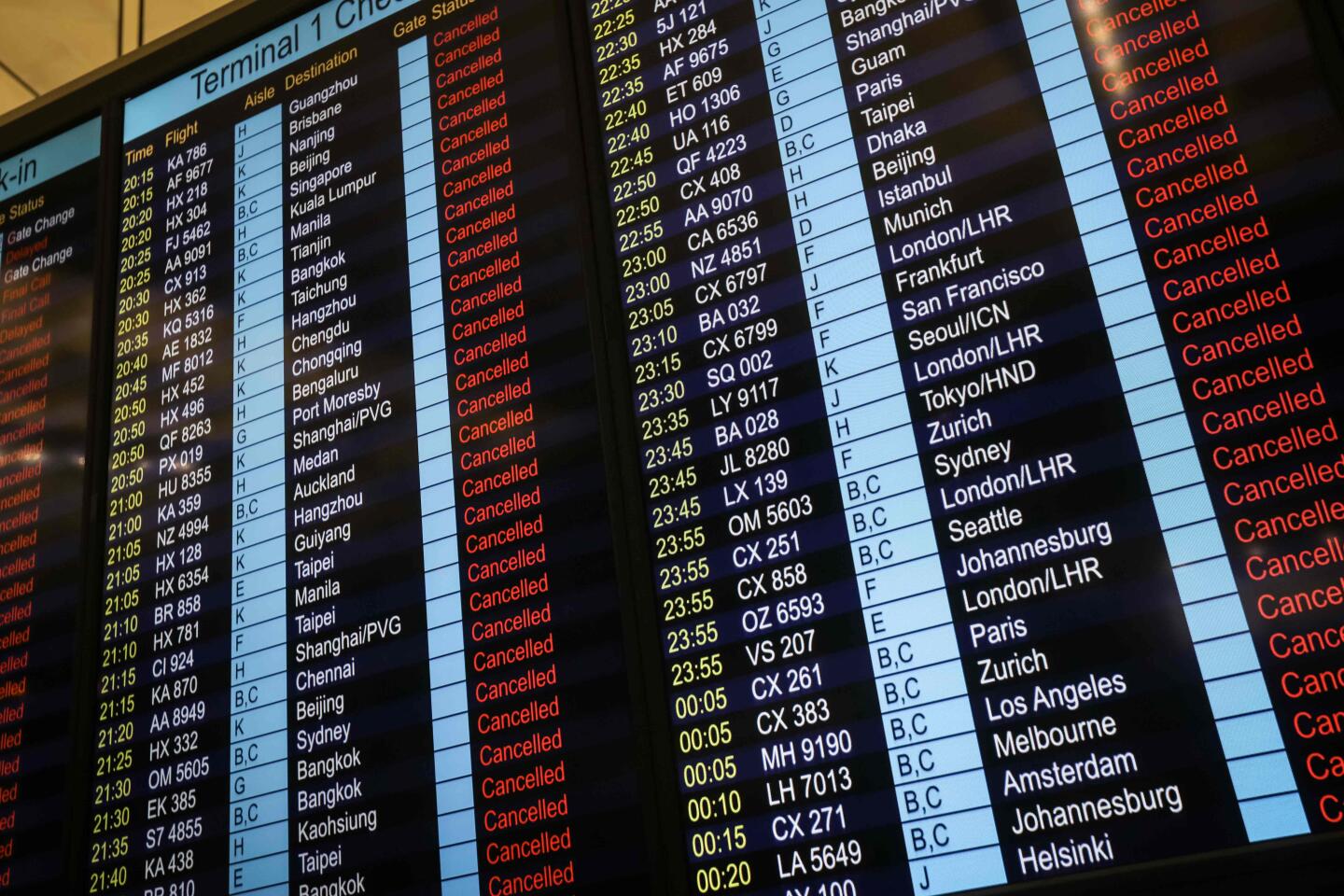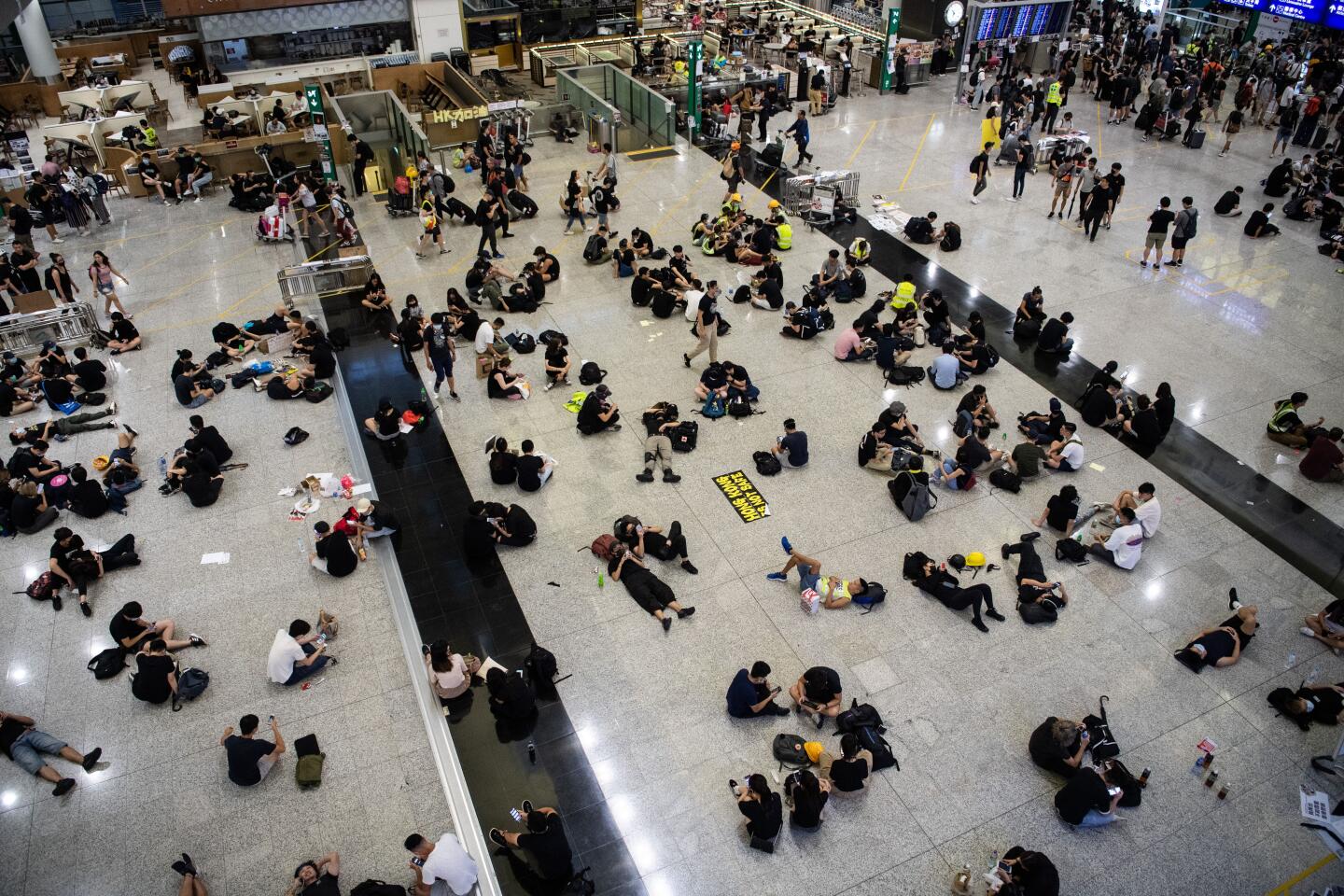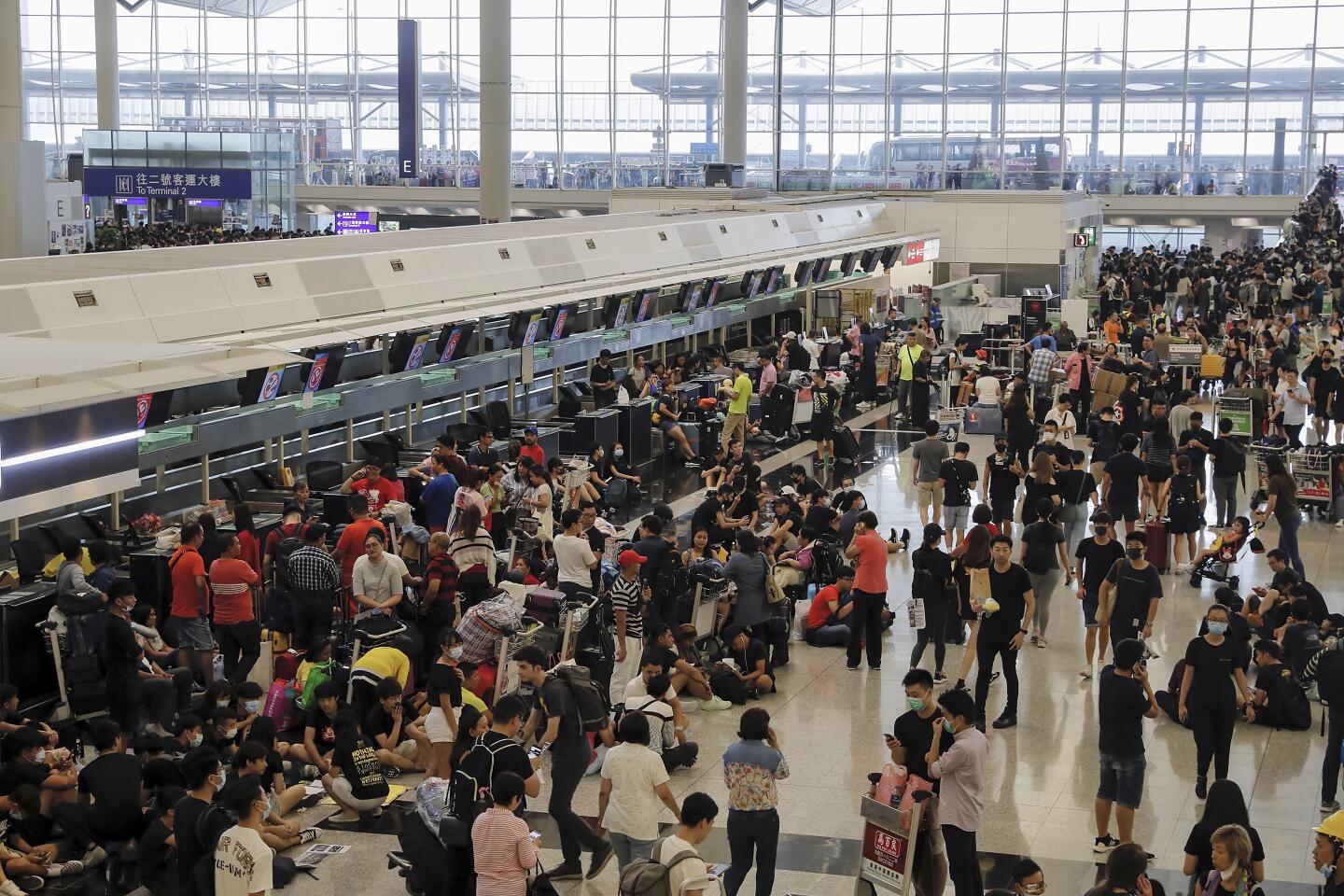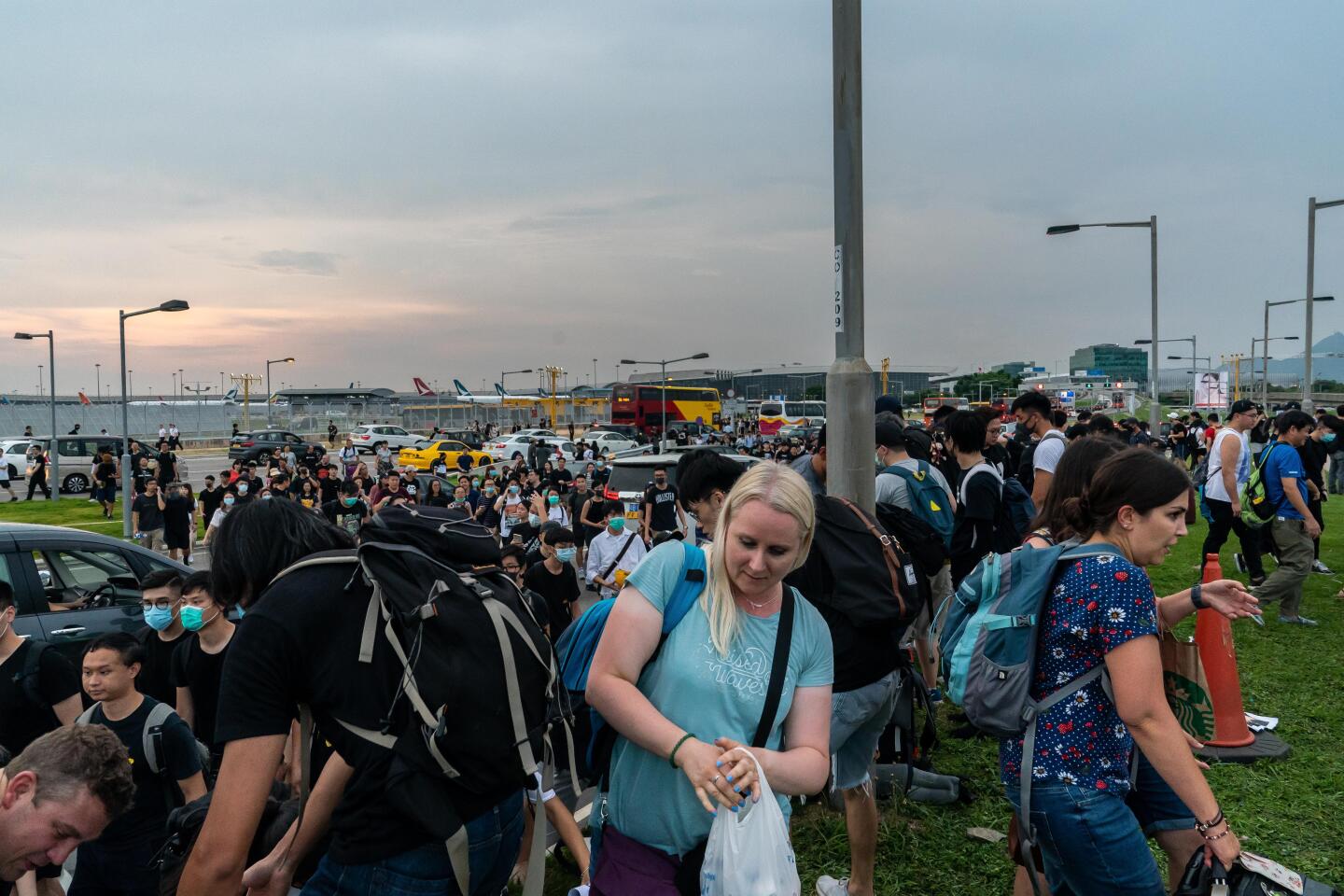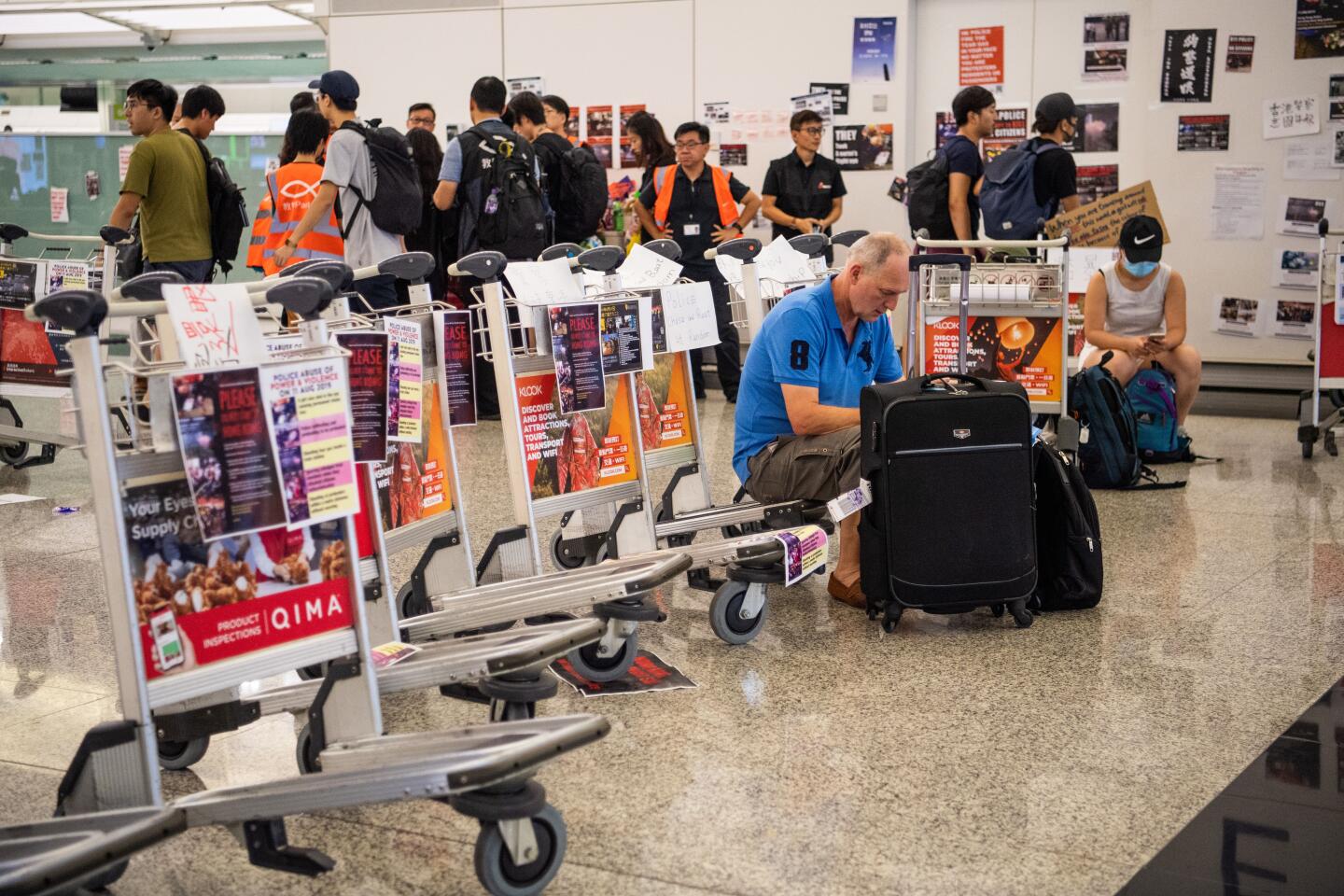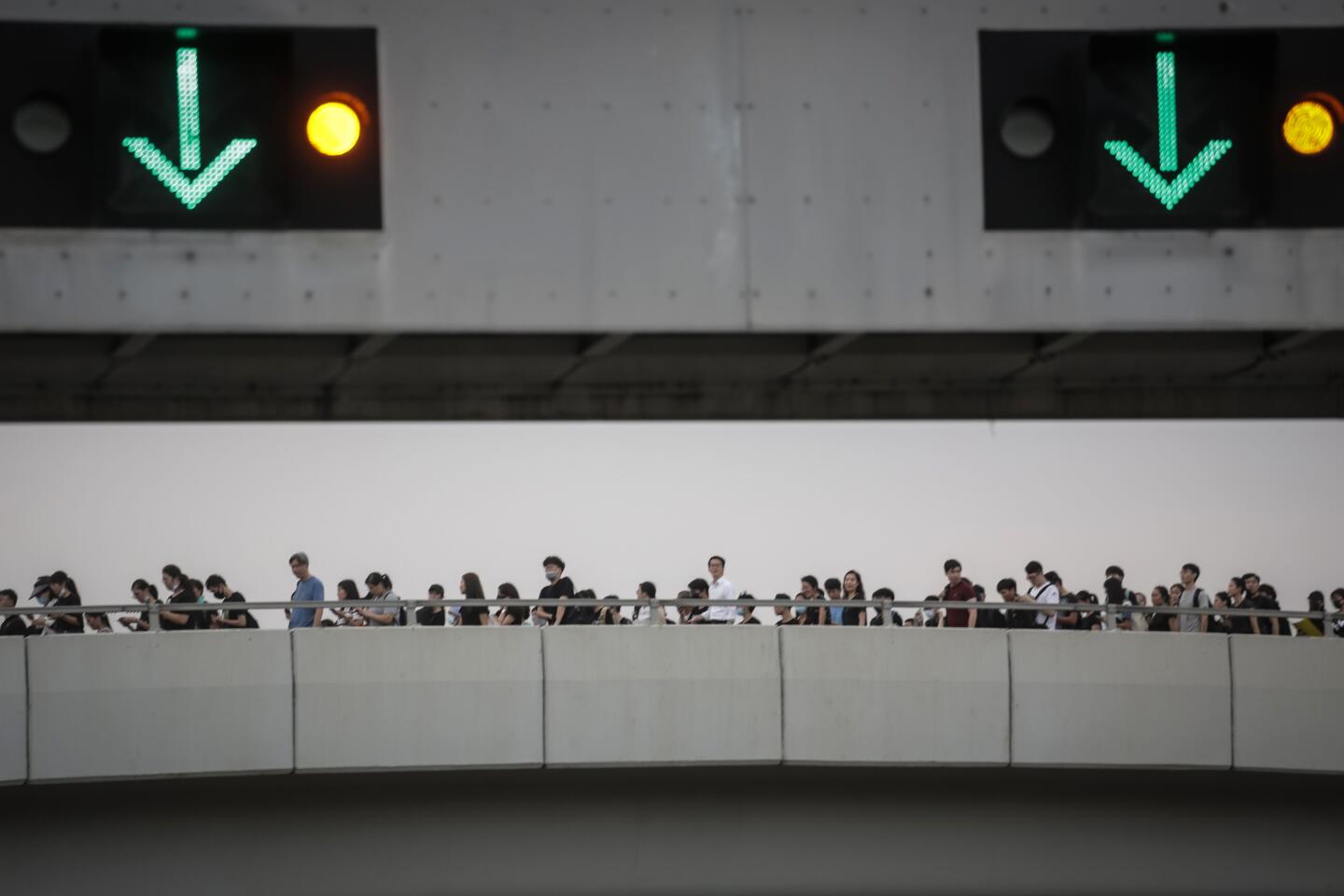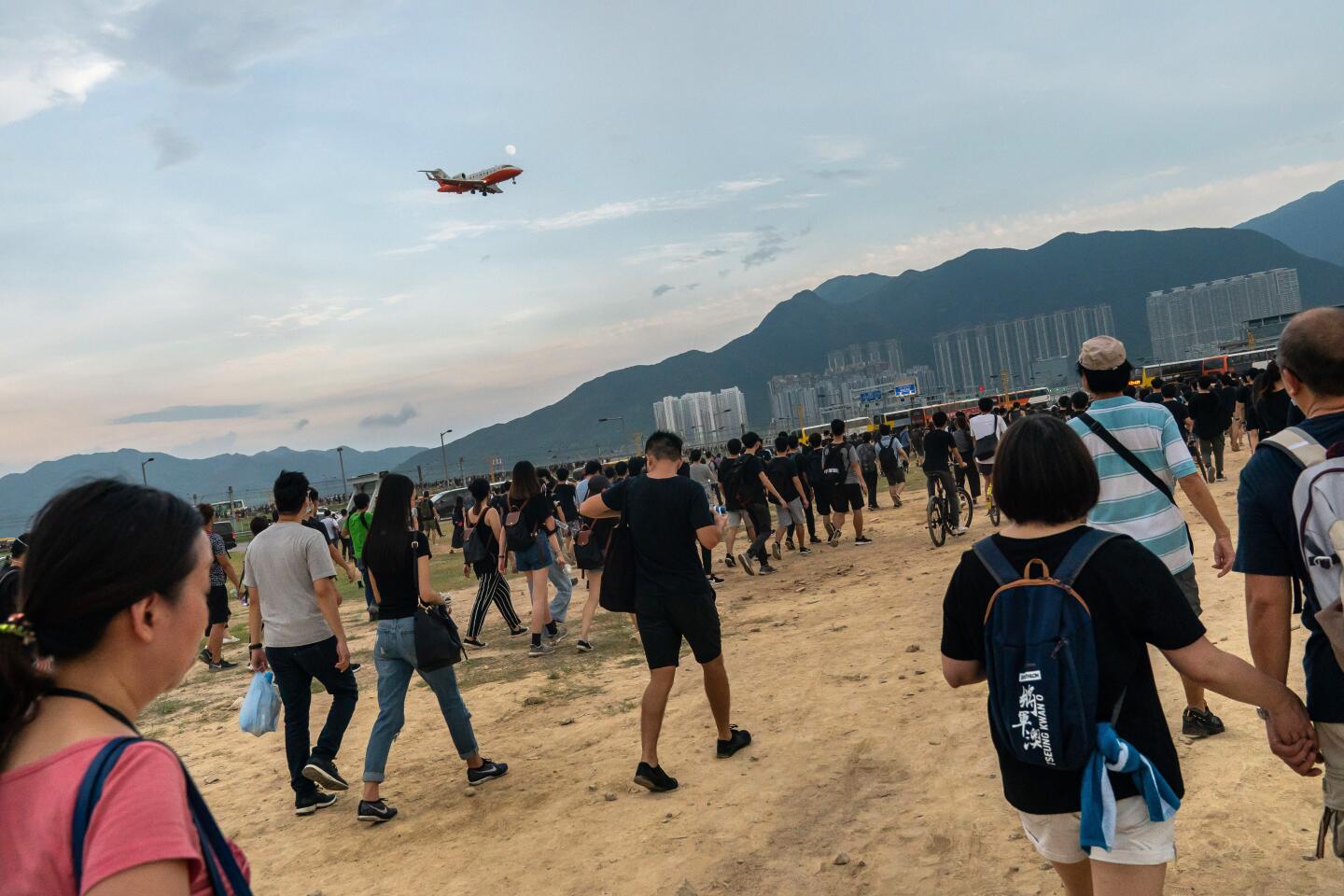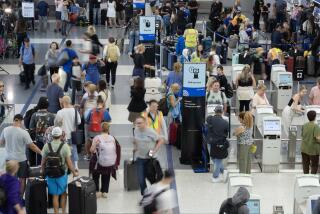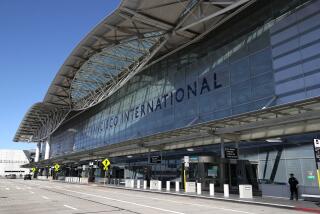Hong Kong’s leader appears to choke up, asking protesters to save city from ‘the abyss’
HONG KONG — A day after protesters shut down the international airport here, the Hong Kong government’s top official said that the Chinese territory was falling into chaos and that her “utmost responsibility” was to return “law and order.”
“It would take a very long time to restore Hong Kong,” Chief Executive Carrie Lam said Tuesday in a televised news conference, at one point appearing to choke up. “Look at the city, our home — do we really want to push it into the abyss?”
There was little sign that calm would return any time soon. Monday brought new levels of disarray, with thousands of demonstrators occupying the terminals in a peaceful sit-in.
“Reclaim Hong Kong! Revolution of our times!” the protesters chanted as travelers carrying backpacks or pushing suitcases tried to figure out where to go.
It was the fourth straight day that they had filled the Hong Kong International Airport — and the first that they succeeded in bringing operations to a halt to draw attention to their 10-week-old movement.
The government canceled all 180 flights that were scheduled to depart after 4 p.m., a move that was announced just as a spokesman for the Beijing government said protesters showed “signs of terrorism.”
“These violent, illegal actions must be met with a determined legal crackdown, with no softening of hands or any sign of mercy,” said Yang Guang of Beijing’s highest government office for Hong Kong affairs. “Hong Kong has arrived at a critical point.”
For a time, his words seemed to set the stage for a clash with police. Rumors that police were on the way prompted a mass exodus of protesters, but by midnight those fears had subsided.
More than 300 additional flights were canceled Tuesday, though airport staff began rescheduling flights in the morning.
Demonstrators said they planned to return to the airport Tuesday afternoon for a fifth straight day.
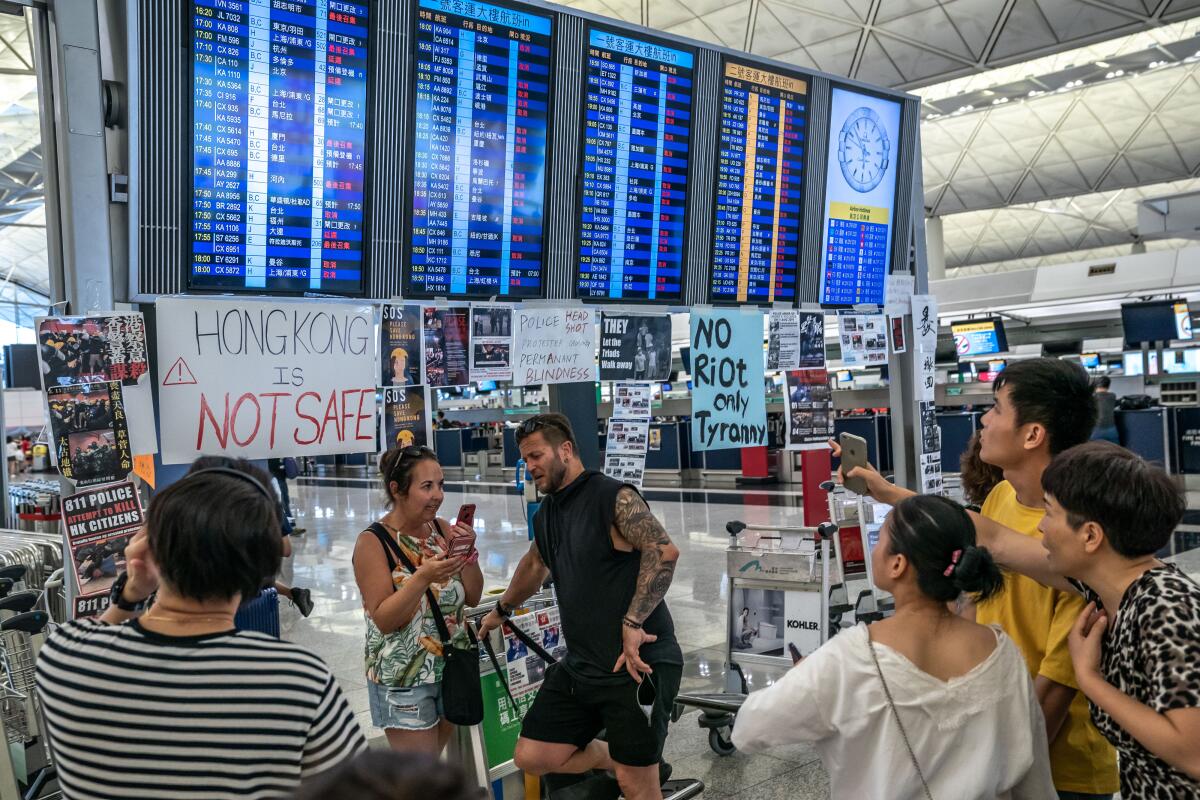
The protest movement began in early June with a series of peaceful demonstrations against an extradition bill that critics saw as a threat to Hong Kong’s rule of law and freedom of speech. It quickly morphed into a much wider campaign against police violence and unwanted Chinese influence over Hong Kong.
Protests now are chaotic, near-daily confrontations among police, protesters, residents and organized gangs on the streets. More than 700 people have been arrested.
Monday’s airport rally came a day after police fired large amounts of tear gas in clashes across Hong Kong, beat protesters in subway stations and shot one woman in the eye with a bean bag round while she was performing first aid.
Police also dressed up as protesters, wearing black clothing and yellow hard hats, to surprise and arrest protesters. One widely shared video shows an undercover policeman grinding a protester’s face into the ground, blood pooling around the protester’s jaws as he cries that his teeth are falling out.
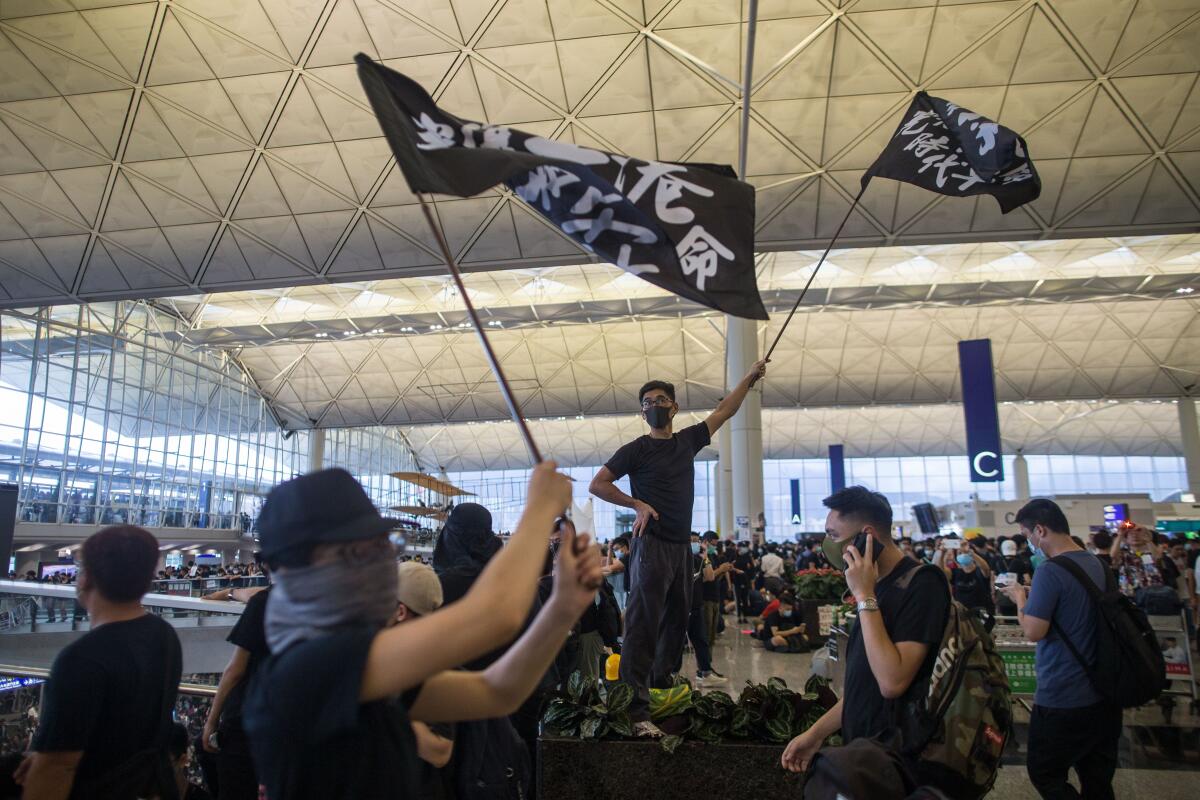
Police spokesman P.K. Tang said in a news briefing that “decoy operatives” had been used to arrest “core radicals.”
Protesters filled both arrival and departure terminals of the airport Monday, holding up signs against police violence and chanting, “Dirty cops, return her eye.”
Many said they’d chosen the airport as a protest site because police were less likely to fire tear gas and charge protesters in the presence of international travelers.
One protester, Indica Lau, handed out postcards about police violence to tourists.
“I wish to do something more, to try telling the world what’s happening in Hong Kong,” said the 25-year-old graphic designer.
She called the flight cancellations a “success” but said she was worried about another confrontation and was leaving the airport.
Another protester, Ah Choi, 21, said the airport shutdown was aimed at pressing government authorities to address demands for police accountability.
“I want them to tell citizens directly what happened,” he said, referring to allegations of police abuse of force.
One small police stall at the airport was covered with sticky notes and signs reading, “Hong Kong police kills citizens” and “Hong Kong is no longer safe.”
“An eye for an eye” was scrawled on a wall.
Beijing has also sent a message to Hong Kong’s business sector about China’s ability to mete out economic punishment for political disobedience by targeting Hong Kong’s biggest airline, Cathay Pacific.
On Friday, China’s Civil Aviation Administration announced that it would ban Cathay Pacific employees from flying on mainland Chinese routes if they participated in “illegal demonstrations, protests and violent attacks,” or if they had “radical behaviors.”
China’s aviation regulation body also requested background information on all crew members for approval before mainland flights.
In late July, a Cathay Pacific pilot had told passengers about anti-extradition protests over the intercom as he landed a flight from Japan, finishing the announcement with “Hong Kongers, add oil.”
Cathay Pacific’s CEO Rupert Hogg wrote in a staff memo Saturday that the company was legally obliged to comply with China’s requirements. The airline also confirmed Saturday that it had fired a Cathay pilot, one of 44 protesters recently charged with “rioting,” and warned on Monday that any staff taking part in protests could be fired.
On Monday, as the shutdown announcement spread, protesters tried to leave the airport, a transport hub built on a small island connected to Hong Kong’s main city by train and bridge, in fear they would soon be stranded.
An exodus of thousands began walking toward a mass transit station as roads were jammed with traffic.
Some travelers boarded an express train to the airport with their luggage in hopes of catching their flights anyway.
“My safety?” said one woman with a ticket to Mumbai, India, nodding to other passengers on the train. “I figured if you guys are going, I’ll be OK.”
Airline staff began to evacuate the airport as night fell, leaving check-in counters empty. A handful of flights continued to arrive.
A mainland Chinese woman from Hangzhou who refused to give her name said she knew “a little bit” about the protests but didn’t think they were relevant to her.
“We travelers are the most innocent. We’re just stranded here for no reason at all. No one cares and no one asks about us,” she said, glancing at the crowds of mostly young protesters in black T-shirts. “I just want to go home.”
Another mainland Chinese traveler who gave only his surname, He, said he was stranded on a layover between Shanghai and Singapore. He, 33, said it was his first time in Hong Kong and that he “wasn’t clear” what the protests were about.
“I see all these posters, but I can’t form an opinion yet,” He said. “I really want to know, what is their objective?
Later in the night, the crowd began to grow again as protesters returned to the airport. Some pushed shopping carts around, handing out cheeseburgers, protective goggles and leaflets to stranded travelers.
Times staff writer Alice Su reported from Beijing, and special correspondent Laurel Chor reported from Hong Kong.
More to Read
Sign up for Essential California
The most important California stories and recommendations in your inbox every morning.
You may occasionally receive promotional content from the Los Angeles Times.
